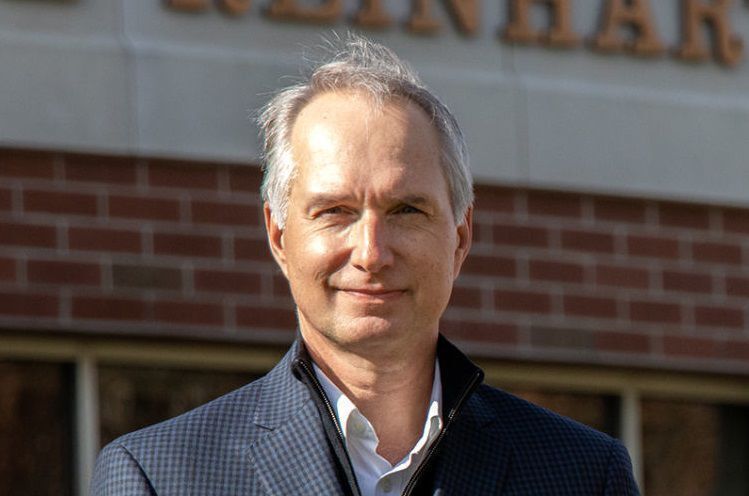Richard Kyte: Here’s why we should say the Pledge of Allegiance
A few weeks ago, I was attending a breakfast meeting with a friend. We were asked to stand and recite the Pledge of Allegiance. She rolled her eyes, a gesture which I don’t think anyone else in the room noticed. She stood with the rest of the group but did not place her hand over her heart or say the words. She wasn’t being disruptive, but she also wasn’t trying to hide her objection.
The Pledge of Allegiance has become a sign of political identity. To many on the right, saying the pledge is an expression of love for our country. To many on the left, it is an expression of complacency: It means you don’t find anything wrong with this country or its history.
I always wondered why allegiance is pledged not to the Constitution, but to the flag first and then to the republic. After all, the oath of office, taken by elected officials, and the oath of allegiance, taken by new citizens in naturalization ceremonies, are pledges to “support and defend” the Constitution, not the republic.
The reasons are complex. The author of the original pledge, Francis Bellamy, thought it was important to pledge allegiance to the flag and the republic (not just the Constitution) because after the Civil War, many people still were loyal to the Confederate Flag and what it represented. As a Christian socialist, Bellamy believed fervently in the power of citizens working together for a common good and thought that could best be accomplished through loyalty to the national ideals of freedom, justice and equality. He believed we should be raising children to be whole-heartedly committed to those ideals.
Michael McAuliffe: We must do more to protect federal judges
I suspect my friend’s resistance to the pledge stems from her long-standing commitment to social and political reform. She is a person with a big heart, and it pains her to see people left behind by laws and institutions too tolerant of racial and gender inequality. She has spent much of her life working on behalf of those who have fallen through the cracks and ended up in jail, who are on the streets, struggling with mental health problems and addictions, or just the slow grinding deterioration of the spirit that comes with generational poverty.
It is one of the ironies of history that it is young people on the extreme left who are most cynical about the Pledge of Allegiance. They look to the historical context in which the pledge was written and point out that it is rooted in colonialist attitudes and racial exclusionism. At the same time, we have growing numbers of mostly young men on the extreme right trying to subvert the principles of unity, liberty and justice by supporting fascist ideas, white supremacism and separatist movements.
Our contemporary political discourse is filled with expressions of frustration, anger and resentment. In such an environment, cynicism prevails. People begin to distrust any attempt at sincere expression, suspecting the motives, looking for hypocrisy.
It is in times like this that we need the Pledge of Allegiance even more. Bellamy thought that one way to improve our country was by raising citizens to be more deeply committed to our highest ideals. He understood that a pledge is not a description of the way things are. It is a vow to do better.
Promises are not policies. What matters is not just what we say but what we do. Yet the words themselves matter because they affect what we do. They direct our attention toward a goal.
To many, the Pledge of Allegiance seems quaint and old-fashioned. But the key ideas of the pledge — unity, freedom and justice for all — are not quaint and old-fashioned. They are actually radical. They go to the heart of who we aspire to be on our best days. The challenge is not to say those words but to act on them with humble sincerity. We do not have to ignore the past, but we have to focus even more on the future.
I am not greatly troubled by the historical context in which the pledge was written or what, precisely, Bellamy intended. The meanings of words change with the context in which they are said. What troubles me is that we have so many people today unwilling to publicly avow a commitment to unity, liberty and justice for everybody.
I don’t say the Pledge of Allegiance because I think this country is perfect. I say it because I am committed to making it better. I see it as a promise to my fellow citizens: I’m with you. I care about who we are and where we are going. I’m not giving in to despair and cynicism.
I pledge to do my best to work toward the simple yet lofty ideals of liberty and justice for all, even though we may never fully achieve them, and I pledge to work toward those goals together, even with those who — for whatever reason — prefer not to speak the words out loud.

